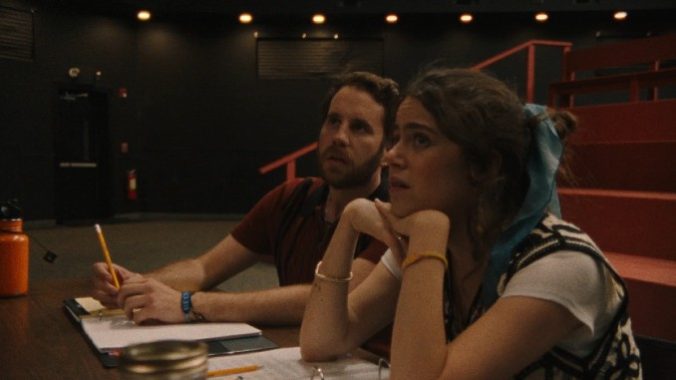The Tangled Coming-of-Age Potential of Summer Camp Movies

Summer camp exists in a parallel universe, floating just above reality, brief and just out of reach. Even if you were to visit the campgrounds frequented as a child, it would be impossible to recapture the transient magic of such a formative experience; filling the absence between school years, wedged between childhood and looming teenagerhood. Filmmakers have long been trying to make sense of the inconsistencies which define this time and place, capitalizing on the feelings which weigh this space down, anchoring it in adult memory. Summer camp movies lend the inexact, childish freedom associated with these places artistic heft.
Regardless of its many (many) oversights, Robert Hiltzik’s cult classic Sleepaway Camp understands how to position its setting, and balance the competing personal and filmic concerns, better than most other slashers of its era. The film slowly pans over the eerily empty Camp Arawak, and while the score builds steadily in the background the dominant sound is the fervor of the unseen children. After laying out the bunks and halls that will formulate the de facto neighborhoods and offices of this social experiment, the audience will never be offered a clear perspective on how this web of cabins connects. Almost immediately we are plunged into the campers’ frantic outlook, where every corner is tinged with the thrill prompted by these brief swells of independence.
Theater Camp, the new comedy from Molly Gordon and Nick Lieberman, takes advantage of this thrill to a different effect. While Sleepaway Camp, and its predecessor Friday the 13th, understood that the adolescent independence of the camp setting also forces childlike recklessness to ricochet around, tearing through campers with a painful ferociousness, Gordon and Lieberman see that this contained wildness also breeds its own shocking humor. Under their guidance the unpredictability of these summers feel warm and exciting, a microcosm of impending adulthood and all of its potential. Even in the film’s more caustic moments (after all, the plot is built around the camp’s owner falling into a life-threatening coma), Theater Camp’s intrinsic warmth is never really tested, unfailingly holding all the characters together. They are willing participants, rather than backed into a corner.
A specific design choice which colors all of these sets, including Theater Camp, is the proximity to a body of water. Water is a perfect compliment to the summer camp, a place free of hierarchy, where adults and children have equal chance of being victim or victor. In ‘80s slashers, this setting holds deadly consequences, with characters perpetually on the verge of toppling in. But the deceptive evenness of water promises freedom to the children of Wes Anderson’s Moonrise Kingdom, all trailing around the island of New Penzance in canoes, circling Camp Ivanhoe in an attempt to find Sam (Jared Gilman) and Suzy (Kara Hayward) an adult who would take them seriously. By the end, the couple is only granted clarity by Captain Sharp (Bruce Willis) when standing over a raging flood, threatening to subject themselves to it rather than conform to uncomfortable adult standards.
-

-

-

-

-

-

-

-

-

-

-

-

-

-

-

-

-

-

-

-

-

-

-

-

-

-

-

-

-

-

-

-

-

-

-

-

-

-

-

-








































